The Future of Ecotourism: How Green Travel Is Taking off
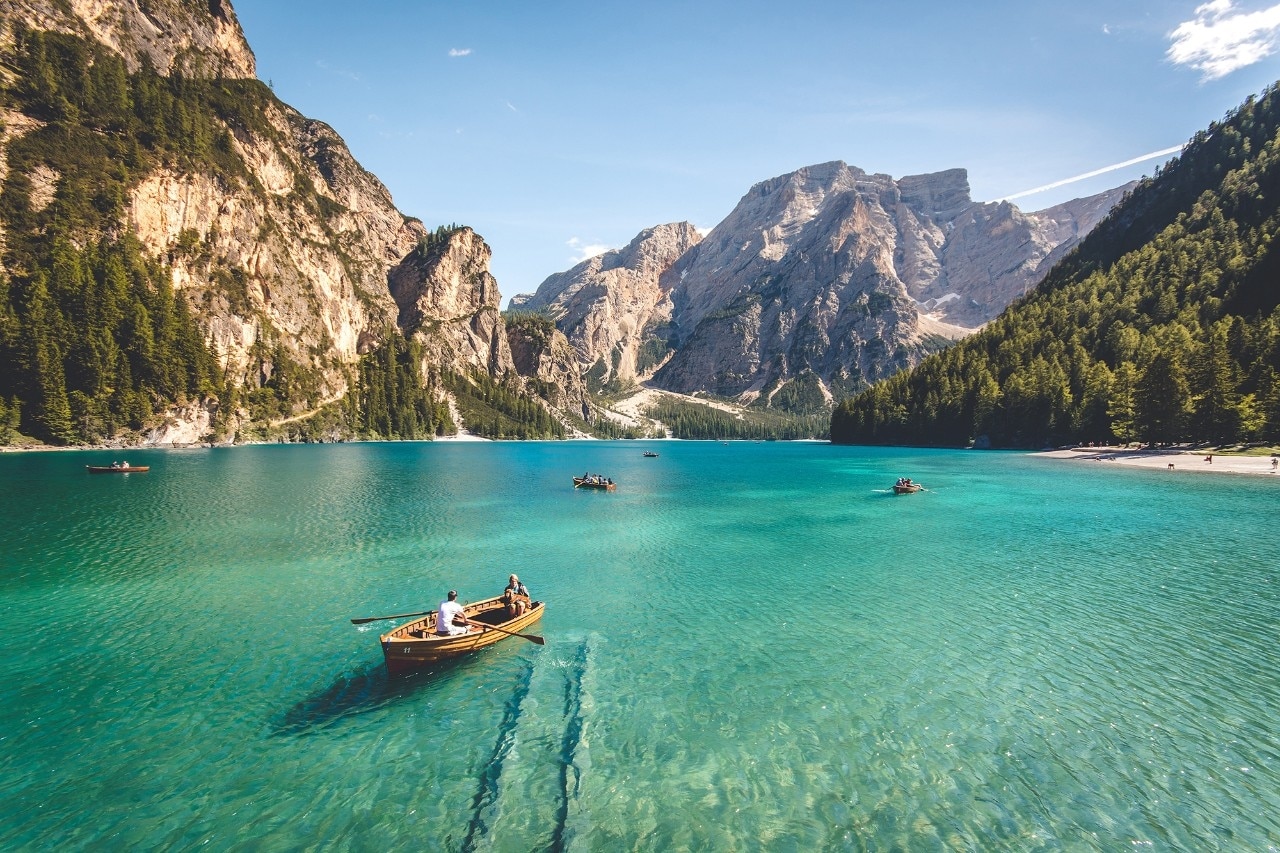
The return of international travel is offering the tourism industry a huge opportunity to reset. Operators and travellers alike are embracing the chance to make exploring the world more environmentally and socially friendly.
“As tourism recovers, we need to put frameworks and business models in place that support that transition to sustainable travel, which allow us all to live life in an enjoyable and meaningful way,” says Professor Martina Linnenluecke, who leads the Centre for Corporate Sustainability and Environmental Finance at Macquarie University Business School. The Centre brings together corporate sustainability and environmental finance experts and its work demonstrating a financial case for action on environmental and social change has attracted worldwide attention.
Linnenluecke warns that the impacts of climate change are “likely to be very significant in some locations, for particular tourism enterprises” and it calls for more thoughtful holiday planning. “We have got a lot of choices to make,” says Linnenluecke. “And the way we behave as tourists really matters.”
So far, ecotourism offerings have been concentrated in the high end of the market. “On the one hand, that’s great because it values the experience,” says Linnenluecke. “However, the higher price tag means that some people can’t afford that sort of holiday. But there’s a lot of middle ground where tourists can make good choices.”
Make the journey count

“Overseas travel for us always means we fly for a minimum of a few hours,” says Sydney-based Linnenluecke. “People should look for opportunities to offset their travel emissions, which is affordable. It’s also a good opportunity to look up what airlines are doing to minimise their impacts.”
Qantas has been offering passengers the opportunity to purchase carbon offsets for more than a decade and has been offsetting its own ground and corporate travel emissions since 2007. And Qantas passengers are keen to do the right thing – one in 10 opt to offset the emissions from their trip, making it the highest uptake in the world.
The Qantas carbon offset program has invested in environmental programs, such as rainforest rescue in South America, Oceania and Africa, community initiatives with Indigenous rangers undertaking traditional fire management work in Northern Australia and renewable energy projects, including wind farms in India.
“I think Australians are happy to spend money if they understand where it’s being invested and how it’s helping,” says Linnenluecke, who co-authored The Climate Resilient Organization, which offers tools to help the private sector build sustainable pathways for companies and customers.
Qantas is committed to reaching net zero by 2050 and this year announced a suite of new initiatives to help it, and its customers, travel more lightly, including flights running on sustainable aviation fuel. In April, the airline announced its new fleet of 12 A350-1000s, each of which will generate 25 per cent less fuel emissions per seat when the aircraft take to the skies in 2025.
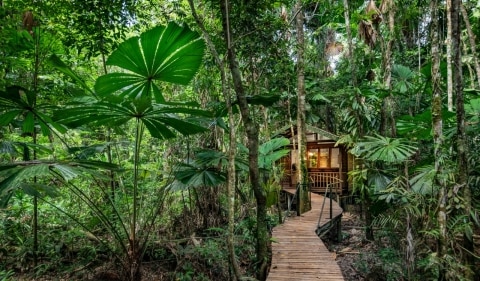
The new Qantas Frequent Flyer Green Tier, which launched in March, also rewards members for making sustainable choices at home and away. It might be installing solar panels in your home, booking stays at eco-accredited hotels (such as the new Daintree Wilderness Lodge or Kingfisher Bay Resort on Fraser Island in Queensland, Capella Lodge on Lord Howe Island or the Taronga Wildlife Retreat in NSW) or even purchasing sustainably grown wine.
Experience a true sense of place

Beyond how we get somewhere, how we behave once we’re at our destination is vital to making the holiday a positive experience for ourselves, the destination and the community we’re visiting.
“We want to minimise our physical impacts,” says Linnenluecke. “Over time, we’ve witnessed the adverse impacts when tourists end up in protected areas and it’s not in line with a good outcome for the environment or with what the local population wants.
“There are meaningful ways for operators to build environmental and cultural awareness, and when people understand the value of natural and cultural assets, and the social connections in that particular place, it has a definite behavioural impact. So rather than the in-and-out resort experience, more operators are starting to offer experiences that really connect with the place. It’s a much more memorable experience,” says Linnenluecke.
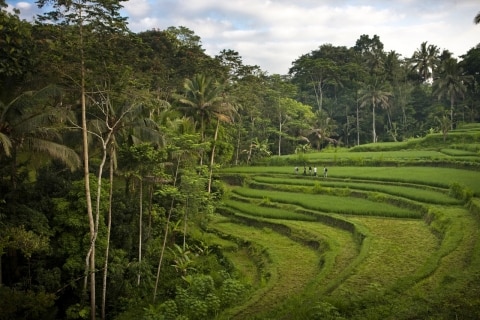
Take the COMO Shambhala Estate in Bali, where guests can venture out from the luxurious resort and take a guided walk through Ubud to learn more about the culture, or attend an ancient Balinese water temple.
Stay smarter
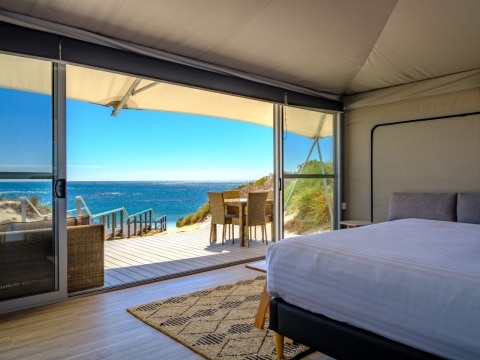
Tourists have great power in influencing the success of sustainable resorts and hotels today, as well as the future of construction and operations. “We need to look for low-impact facilities,” says Linnenluecke, who’s wary about “hang-your-towel to save the planet” initiatives. “We’ve all had those little cards asking us to re-use our towels but I think some operators do very little and it’s nothing more than greenwashing.”
“Academic studies show that the environmental impact of individuals when they’re travelling is larger when they’re away from home because they see it as a time for enjoyment, relaxation and consumption. Unfortunately, it brings out some behaviours that are not as eco-friendly as they would be at home.”
However, if a resort or hotel offers guests an incentive that goes beyond the feel-good factor, there’s traction. “If you’re offered a voucher for a meal discount or a free cocktail because you don’t get your sheets changed or you do hang your towels, that’s very effective,” she says. “That behavioural incentive is compatible with the tourism experience – I’m happy to hang my towel if you’re offering me a cocktail!”
All the major hotel groups have sustainability initiatives – read up on the options at your destination and how active they are in promoting sustainability.
For example, in 2021, Accor expanded its UNESCO sustainability pledge to 96 countries. The pledge includes promoting the local economy and culture, as well as protecting the environment. The hotel group aims to eliminate all guest-related single-use plastic items by the end of this year.
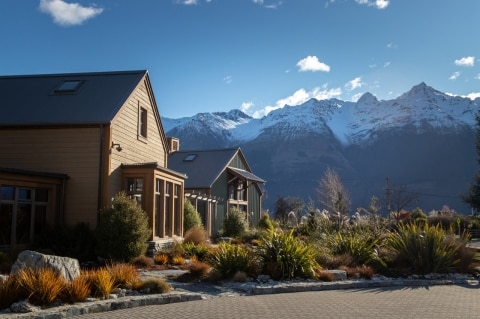
Many resorts make the eco aspect central to their appeal, such as award-winning The Headwaters Eco Lodge at Camp Glenorchy on Lake Wakatipu in New Zealand (above) – the country’s first net-zero energy accommodation.
In Western Australia, Discovery Rottnest Island comprises 83 luxury eco tents joined by walkways to protect the precious natural landscape, with no fences or boundaries to ensure the world-famous local characters, the quokkas, can roam free.

Hotels with overt charitable causes are another way to make your stay meaningful. Launceston’s Change Overnight (above) offers guests #ABetterNightsSleep by donating a portion of each stay to one of its selected charitable and environmental causes. Impact statements tracking the difference the donations make are published on their website.
Holiday for good
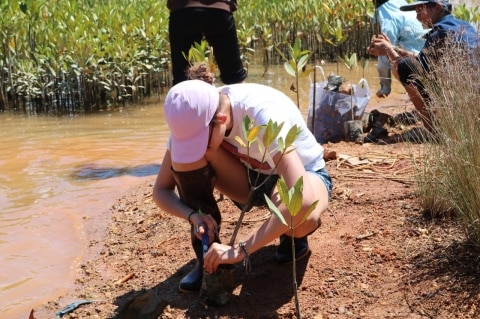
Restorative ecotourism is the latest heartwarming trend for mindful travellers, says Linnenluecke. At a minimum, it’s a donation to support local conservation or community projects but there’s also the opportunity to get actively involved and leave your destination better off than when you arrived.
“Those who want to have a more immersive experience can find a place where they can volunteer and do something really useful to contribute,” she says. Conservation efforts are the main targets – think beach clean-ups, coral planting, data collection to support wildlife research and working to rehabilitate habitats. A good place to start looking for volunteer opportunities is GVI Australia, part of a global network founded in 1998.
“When you feel connected to a location or a community, you want to see it protected,” says Linnenluecke. “You enjoy your time more and you want to find a way to give back to that place.”


